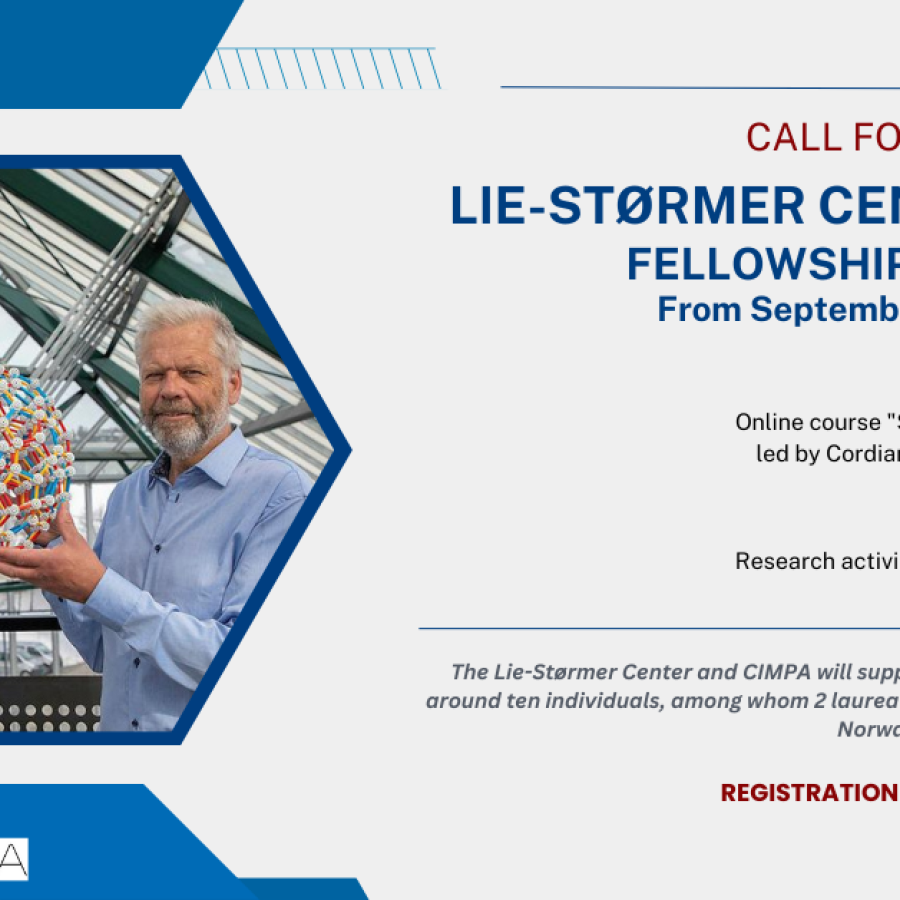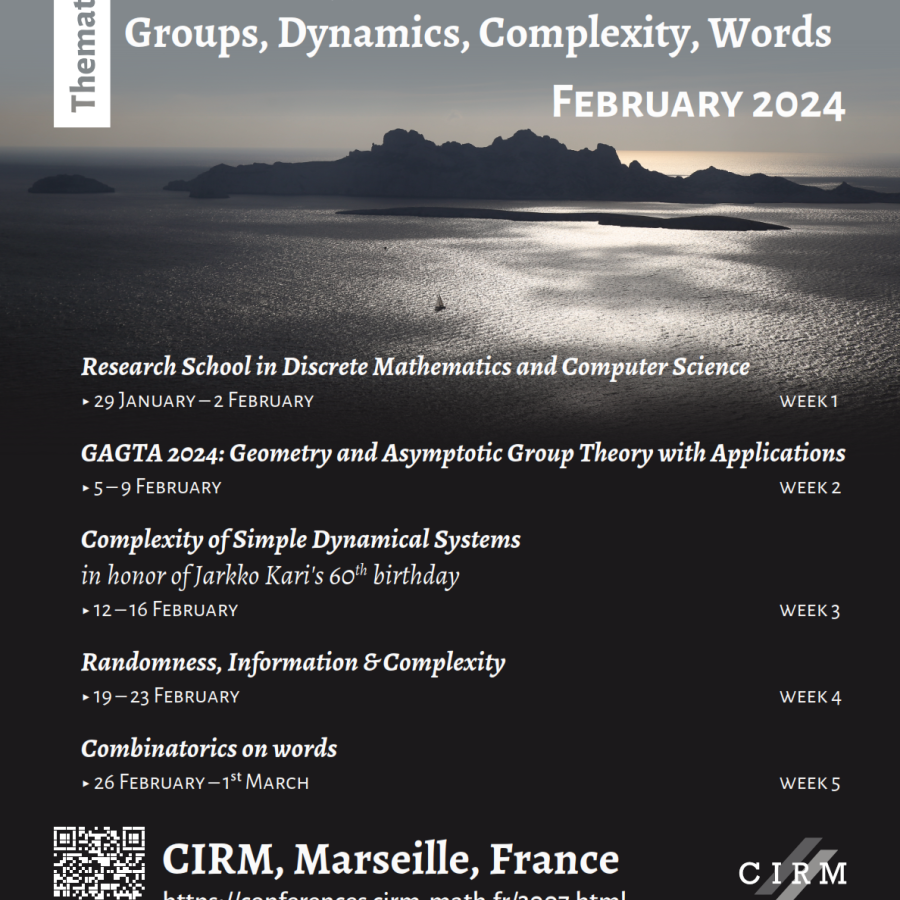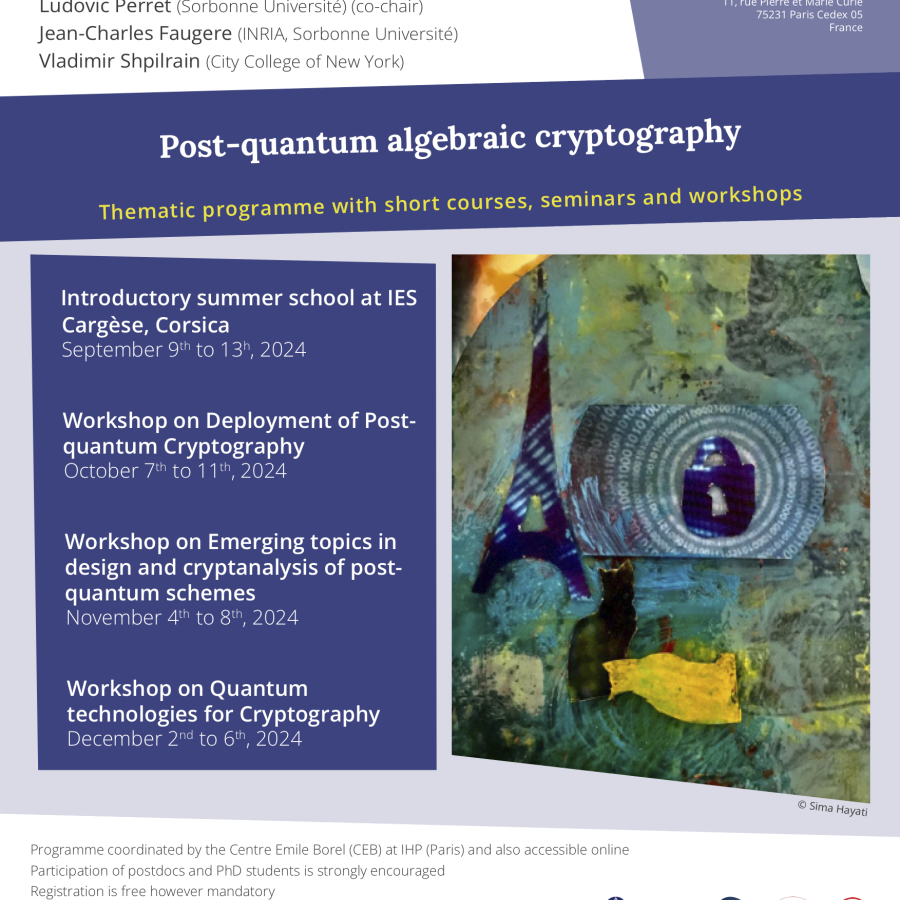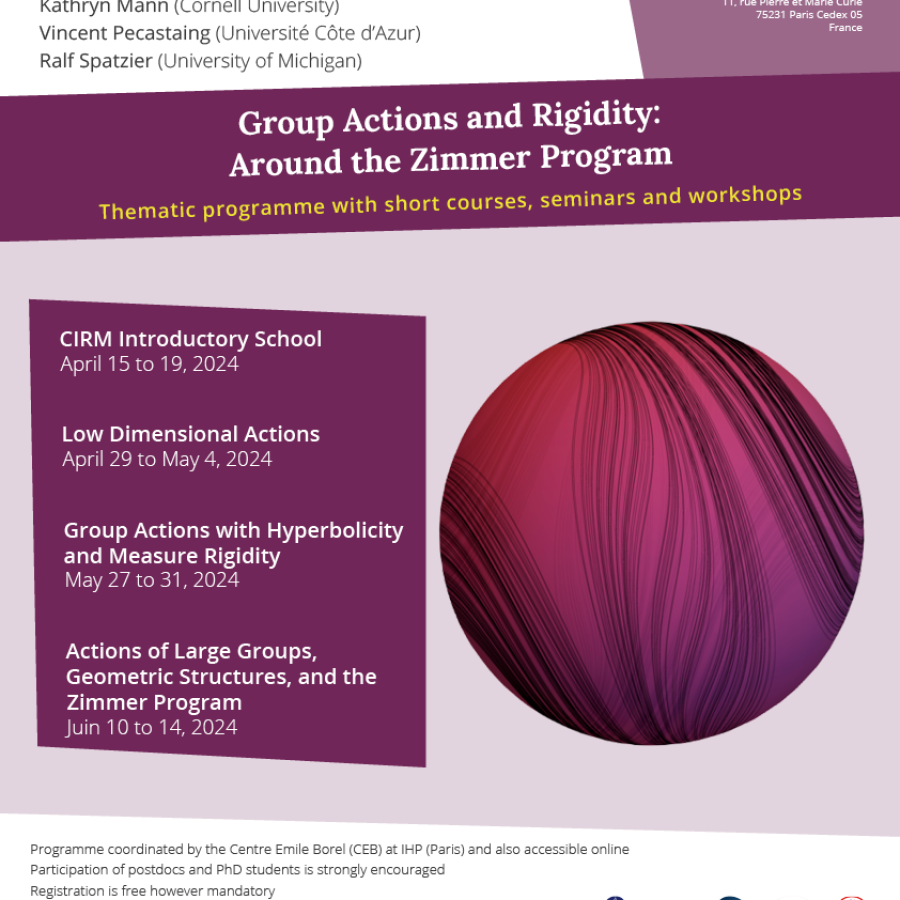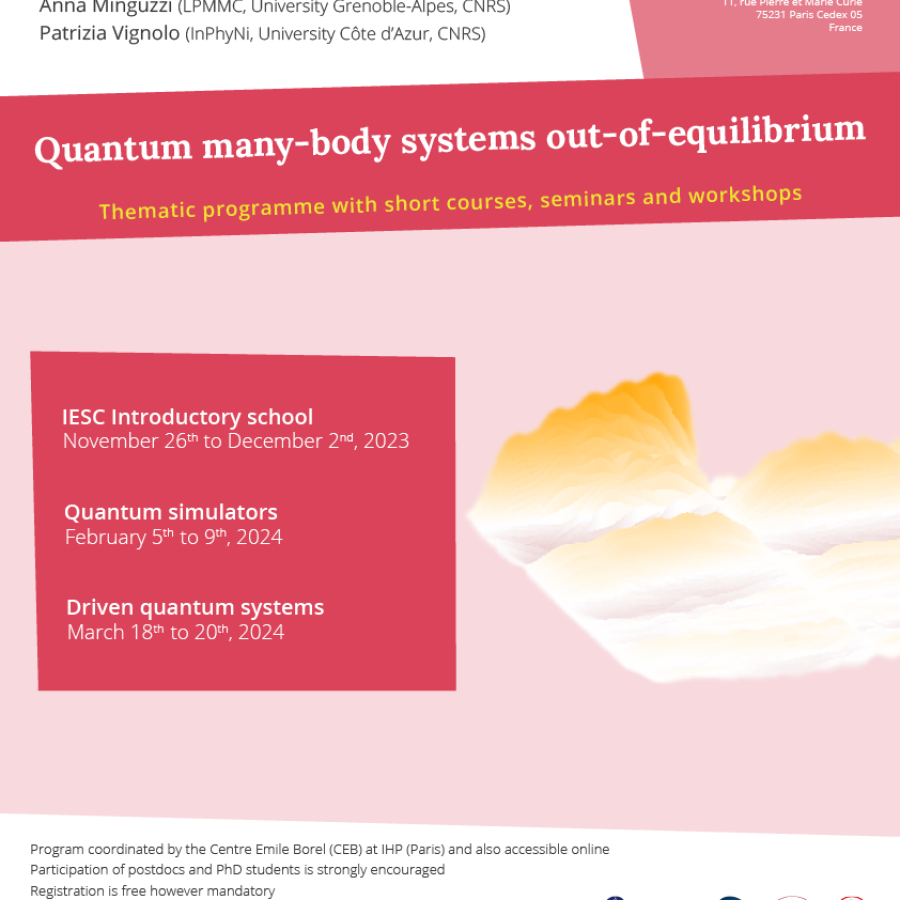The interface of mathematics with computer science form a large, diverse and rich landscape. Of course, many classical mathematical tools and concepts turn out to be very useful to answer questions arising from computer science. Besides, the core objects of computer science (typically discrete) that were once considered non-classical in mathematics have now a well-established and growing theory. In addition, the main ideas of computer science (the very notions of computation and algorithmic complexity) yield new points of views and new questions on many mathematical objects.
2024
Quantum many-body systems out-of-equilibrium
The theoretical study of quantum many-body systems is a challenging task due to the amazing complexity induced by the huge number of degrees of freedom of these systems. Equilibrium properties of such systems have been deeply studied in the last decades. In particular, at one-dimension, it is possible for some systems to have access to exact solutions, for instance, within Bethe Ansatz methods. Where exact solutions are not accessible, it is possible to use field theoretical approaches or numerical techniques.
Branching Processes and their applications
Ibrahima Drame
Summary: In this course, we will study Galton- Watson processes, which are the simplest prototype of branching processes and are characterized by the fact that time is discrete and represents successive generations. On the other hand, we will consider branching processes in continuous time, that is, populations that reproduce and die at random times, continuously over time.
Probability and Statistics
Chiara Franceschini
Statistics in High Dimension
Frédéric van Wijland
Summary: High dimensional data are everywhere, from physical systems to the spreading of epidemics, the world of economic agents or that of neural networks and machine learning. The course aims at stressing the basic techniques underpinning our understanding of the emergence of collective behaviors in very large assemblies of interacting agents.
Functional Analysis
Gabriela Alexandra Estevez Jacinto
Summary: We study the space of compact operators defined in Hilbert spaces. We saw some examples and the relation of this space with the other spaces such as the space of operators of finite rank, the set of self-adjoint operators, the set of operators with non-empty eigenvalues. We also studied some of the main properties of compact operators such as the characterization of self-adjoint and compact operators (Spectral Theorem) and some applications.
Complex Analysis
Anna Benini
Summary: Anna Miriam Benini introduced topics such as conformal mappings, Riemann surfaces, Riemann mapping theorem, classification of Riemann surfaces, and meromorphic functions on the Riemann sphere.


